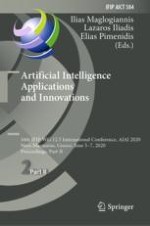
2020 | OriginalPaper | Buchkapitel
The Ethos of Artificial Intelligence as a Legal Personality in a Globalized Space: Examining the Overhaul of the Post-liberal Technological Order
verfasst von : Abhivardhan
Erschienen in: Artificial Intelligence Applications and Innovations
Aktivieren Sie unsere intelligente Suche, um passende Fachinhalte oder Patente zu finden.
Wählen Sie Textabschnitte aus um mit Künstlicher Intelligenz passenden Patente zu finden. powered by
Markieren Sie Textabschnitte, um KI-gestützt weitere passende Inhalte zu finden. powered by